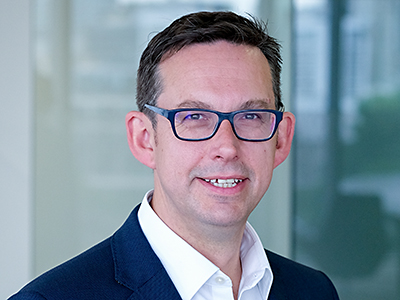ACD and Molecular Instruments take RNA-sequencing patent battle to the UPC
The UK High Court has found two Advanced Cell Diagnostics patents invalid for obviousness, with the company now filing an infringement case against Molecular Instruments at the UPC. The dispute, which concerns RNA-sequencing biotechnology, is the fourth infringement case to be filed at The Hague local division.
7 May 2024 by Amy Sandys
US companies Advanced Cell Diagnostics (ACD) and Molecular Instruments are bringing their European fight over RNA-sequencing patents to the Unified Patent Court. On 23 April, the UK High Court found two patents belonging to ACD invalid, after the claimant had brought an infringement case against competitor Molecular Instruments (case no. HP-2022-000026). But ACD has now filed a further infringement case in The Hague, at one of the UPC’s local divisions.
RNA-sequencing tech
According to a press release from Bio-Techne, the parent company behind the ASD brand, “the lawsuit seeks damages and injunctive relief requiring Molecular Instruments to stop infringing ACD’s patents in key European markets”. Defendant Molecular Instruments designs molecular kit products “for multiplexed quantitative bioimaging in academic research, drug development, and clinical diagnostics”.
Both the UK case and the UPC case concern EP (UK) 1 910 572 B1 and EP (UK) 2 500 439 B1, which cover in situ detection of nucleic acids by hybridisation. This is a form of molecular detection. The technology at play is applied in RNA-sequencing technology, which according to the National Library of Medicine (Kukurba and Montgomery, 2015) “uses the capabilities of high-throughput sequencing methods to provide insight into the transcriptome of a cell.”
In the UK case, presiding judge Richard Meade found both patents invalid for obviousness over the prior art. However, the judgment also states that, should Meade have found EP 572 valid, he would have also found Molecular Instruments guilty of infringement.
Turning to the Netherlands
Spatial biology company Bio-Techne owns multiple patents which cover features of its ‘RNAscope’ technology.

Christopher Sharp
Kim Kelderman, president and CEO of Bio-Techne, says, “Bio-Techne has made substantial investments to become the global leader in the rapidly growing spatial biology industry, including the development and application of its RNAscope technology… we will continue to diligently monitor the spatial biology industry for violators of our intellectual property and vigorously defend our position against any potential offenders.”
So far, according to the latest UPC statistics, The Hague has received four infringement cases, three counterclaims for revocation and two applications for provisional measures.
It is currently level with the Milan local division in terms of number of filed infringement cases, while the three German local divisions in Munich, Düsseldorf and Mannheim remain in the top three positions.
Although The Hague local division has not yet handed down a decision concerning the merits, it has handed down several orders. The latest was between Dutch companies Plant-e and Arkyne Technologies concerning confidentiality with regard to financial information. The court’s two legally qualified judges are Edger Brinkman and Margot Kokke.
New client, new court
While a London team from Pinsent Masons, led by partner Christopher Sharp, represents ACD in the UK proceedings, the client has instructed a mixed team from the firm for the UPC case. Here, Sharp will work alongside lead partner Judith Krens, from the firm’s Amsterdam outfit, at The Hague local division.
Partner Kristina Cornish, who joined Pinsent Masons in early 2023 as one of its first patent attorneys, will provide technical support. Cornish is also involved in the London proceedings.

Huw Evans
ACD is new to Pinsent Masons, with the case against Molecular Instruments marking the firm’s first instruction for the client. According to the UPC case search, this is also Pinsent Masons’ first public case at the supranational court.
Molecular Instruments has instructed a team from Gowling WLG in London, led by partner Huw Evans. However, for the UPC proceedings, the company has not yet appointed a firm.
For Advanced Cell Diagnostics
8 New Square (London): Tom Moody-Stuart
Three New Square (London): Stuart Baran
Pinsent Masons (London): Christopher Sharp (partner): associates: Anna Harley, Hannah Rigby; Kristina Cornish (partner, patent attorney)
For Molecular Instruments
Three New Square (London): Thomas Hinchliffe, Thomas Lunt
Gowling WLG (London): Huw Evans (partner): associates: Alex Driver, Felicity Wade-Palmer, Hannah Barnett
UK High Court, London
Richard Meade (presiding judge)
